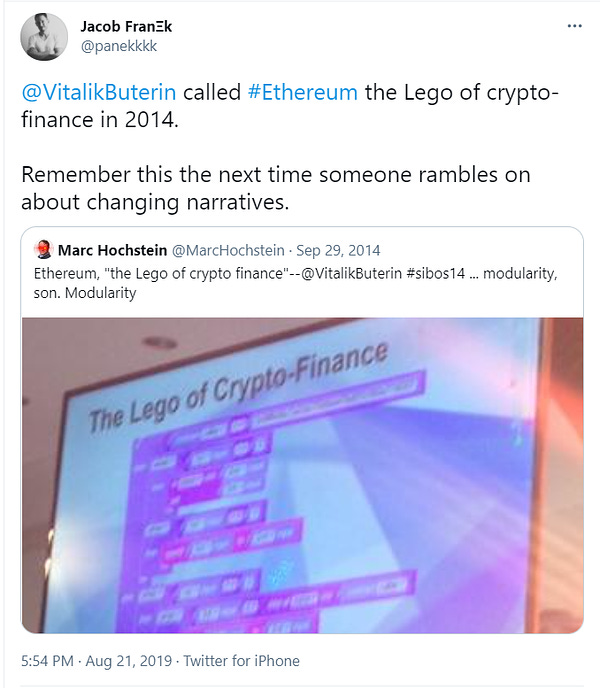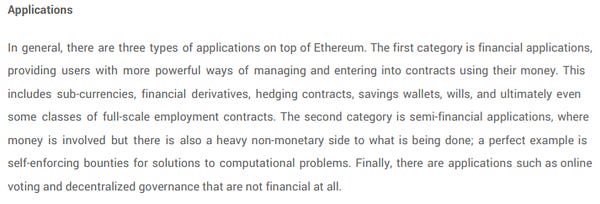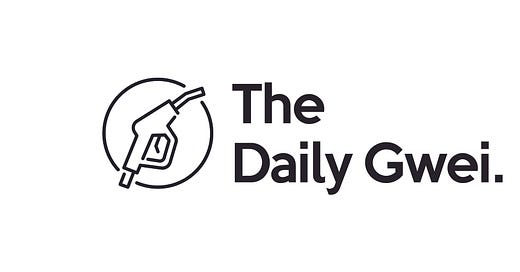Vitalik is obviously one of the best thinkers in the crypto ecosystem and there really aren’t that many people who are as well versed as him across multiple disciplines in this industry. One thing I’ve always admired about Vitalik the most is his ability to rally people around a narrative very early on and steward the Ethereum community towards a common goal without being a straight up dictator.



Now, to Jacob’s tweet above, I always find it funny when critics deride Ethereum about its “narrative always changing” when this is actually a positive thing for Ethereum. But even then, Vitalik was essentially talking about DeFi in 2014 and it took until mid-2020 for DeFi to actually really start gaining traction. So in a way you could say that Ethereum’s narratives are actually ahead of where the ecosystem is which means Ethereum essentially grows into these narratives over time. Another example of this is what’s happening with scaling on Ethereum - some people think that Ethereum was always about scaling on layer 1 and not even bothering with layer 2 which couldn’t be further from the truth.
On top of this, the Ethereum network has been expressive and programmable since it was launched in July of 2015 and this means that there are always new use-cases popping up and finding product-market fit. Maybe something comes to market too early (like NFTs with CryptoPunks and CryptoKitties) but then later explodes in usage like we’ve seen over the last few months - this is just the nature of a platform like Ethereum that lets thousands of experiments bloom at once. Of course, most of these experiments will fail but that doesn’t mean that Ethereum is constantly changing its narrative - it’s just the natural result of trial and error (especially trial and error at such a massive scale).
This “changing the narrative” argument always comes up when talking about ETH too because as an asset ETH has definitely evolved over time. What started as an asset that was just meant to be used to pay gas fees on the Ethereum network has obviously transformed into much more than that. In addition to this, Ethereum didn’t really have any defined monetary policy until the community rallied around “minimum necessary issuance”. So the narrative around ETH as an asset has definitely changed but could anyone argue that this is a bad thing? If ETHs monetary policy had stayed largely undefined then we’d still be paying 5 ETH per block to miners (it’s 2 ETH currently) and the monetary policy would be extremely prone to capture from special interest groups.
Staying in one place and not evolving is usually how things die - even for things like blockchains that I believe are meant to ossify over time (if they want to become as decentralized and secure as they can be). Though premature ossification doesn’t really do anyone much good and leads to just being stuck in one place and stuck on one narrative - I would rather Ethereum continue to evolve and “change” some of its narratives over time because I believe that will lead to a better and stronger ecosystem overall.
Have a great day everyone,
Anthony Sassano
Join the Daily Gwei Ecosystem
All information presented above is for educational purposes only and should not be taken as investment advice.




